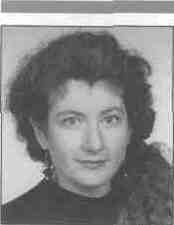The state of the State
When Gov. Jim Edgar appointed Jess McDonald to head the beleaguered Department of Children and Family Services, there were expressions of cautious optimism from various sectors. After all, McDonald had experience running a troubled state agency: From March of 1992 until his appointment to DCFS last month, he presided over the state's mental health department, which faced lawsuits alleging systemwide problems of its own. And he had headed DCFS for six months under former Gov. James R. Thompson. Perhaps even more important, he had worked as a DCFS caseworker for more than a year before moving into executive positions within the agency. Much criticism within DCFS is centered around the lack of dialogue between those at the agency's helm and those in the field, namely the caseworkers. McDonald's dual experience could signal an ability to link different rungs of the DCFS ladder. Even so, it is difficult to be optimistic about the difference one person will make in the state's child welfare department — not only because of the scope of the agency's problems but because of the scope of problems faced by the sectors of society DCPS often deals with. Last year, an Illinois House subcommittee traveled the state to observe the child welfare system firsthand and talk to people involved with it about their concerns and suggestions for how to improve things. The subcommittee was charged with investigating allegations of misdirection and mismanagement within the department. One startling figure from the committee's co-chair. Rep. Tom Dart (D- 28, Chicago), was that at least one-third of all child deaths in Illinois had some link to DCFS. Based on visits to DCFS offices, hospital emergency rooms, juvenile courts, foster homes and other facilities that deal with child welfare all over the state, the subcommittee came up with 21 recommendations that its members felt could begin to ease the agency's problems. These recommendations range from broadening services for substance abusers to measures that would meet the needs of foster parents. "I thought about trying to put them all up in a legislative package, but I knew I'd get laughed at," said Dart. "People would wonder where I'd get the money for it all. They don't want to make tough calls like that." Instead, he is concentrating on passing just three of the recommendations: • Starting a Healthy Start demonstration project. Based on a model used in Hawaii, Michigan and other states, Healthy Start calls for participating hospitals to screen all new parents and identify those who could use some education about child abuse prevention. Caseworkers then would visit these families once a week to teach abuse prevention skills, provide access to services like substance abuse treatment and nutrition programs, screen for developmental delays and make sure children are immunized. • Setting up a "bill of rights" for foster parents that would help these caretakers understand their roles within the child welfare system. Dart said there is so much confusion on this subject that a listing of detailed duties would help both DCFS and foster parents. • Establishing education programs for homeless adolescents — there are at least 22,000 across the state — so they have, as Dart put it, "at least one area in their lives that is a source of enrichment and stability." Dart said he is optimistic the foster parents "bill of rights" will end up being approved as part of a legislative conference committee report, and he is confident the homeless education proposals have a good chance of becoming law. He is less optimistic about Healthy Start 8/July 1994/Illinois Issues
being approved this year, partly because of the estimated $54 million the program would cost. Sadly, these proposals are far from being anywhere near the comprehensive list of 21 recommendations. Providing homeless children with stable education, for example, may indeed provide some enrichment in their lives, but it doesn't solve the problem of them lacking a place to call home. Dart said he would have preferred to push for extra beds and other services in state shelters for adolescents, but had to limit his agenda to what might be realistically approved by the General Assembly. "The education program isn't going to solve much, especially when we're putting them in these horse-shit shelters, where they get next to nothing," he says. "But at least there's the chance they'll be learning something they'll be able to use." Similarly, another subcommittee recommendation — to double the number of residential substance abuse beds in the state — wouldn't do much to keep drug- addicted parents from having to return to the same environment that fostered their drug abuse in the first place. "You know what, though?" says Dart. "At least they're something. These are about the only tools we have for helping these people have a better chance to survive their environments. It may not be a lot, but it's something." To be sure, something is better than nothing — if the bills can get past the politics of the legislature. Not a week after Jess McDonald's appointment was announced, it was reported that the agency's telephone hotline for child abuse and neglect reports was on track to receive 10 percent more than last year's record number of calls. In addition, it looked like there would be a nearly 9 percent increase in the number of children taken into DCFS custody over last year. Last month there were more than 40,500 children in DCFS custody. With so many children involved, it's too much to ask that a new DCFS director be able to make all problems disappear. But if McDonald can remember the things he needed during his days in the grassroots of child welfare, while also working to push bipartisan agreement on legislative reforms needed, he may be able to make a little progress.
|
|||||||||||||||

